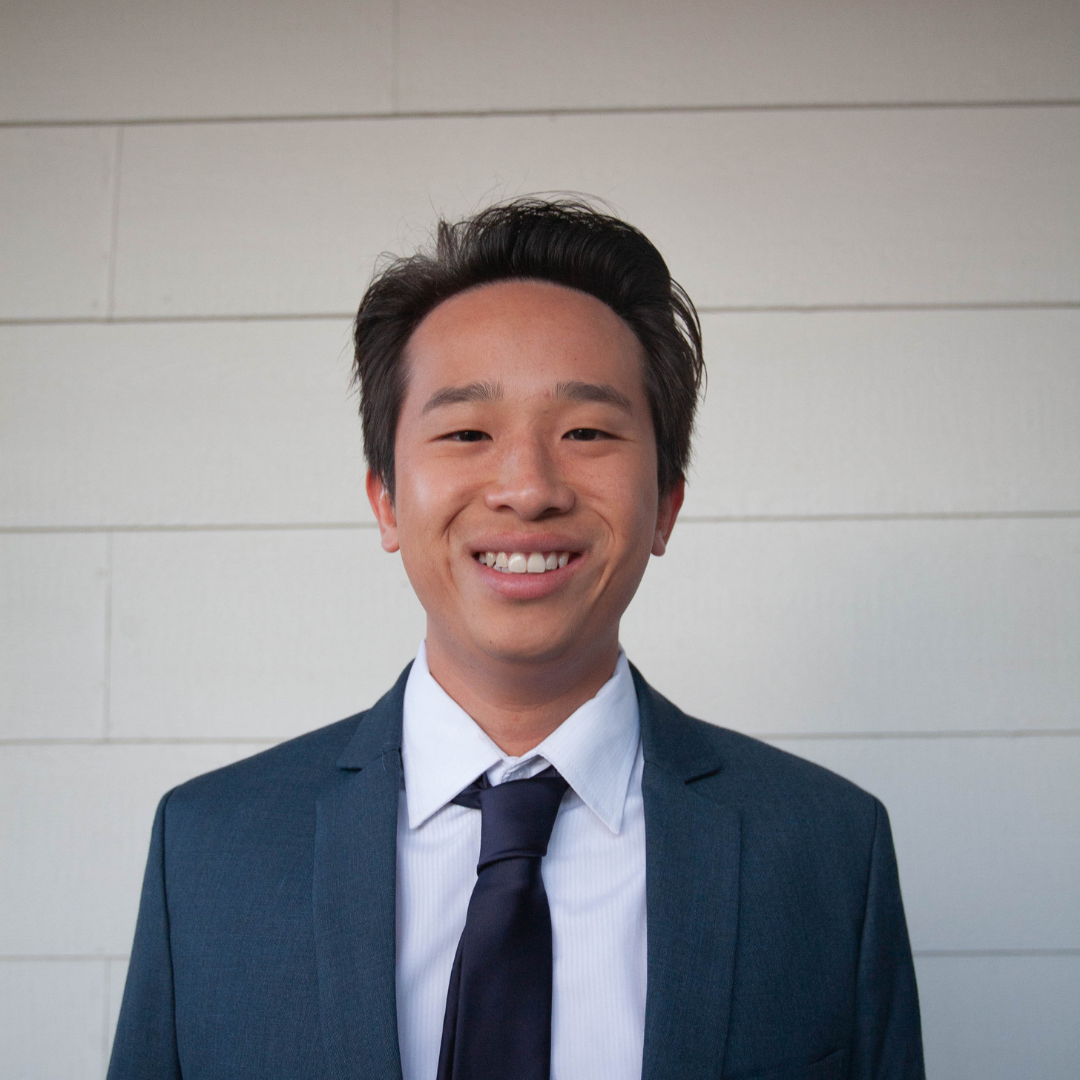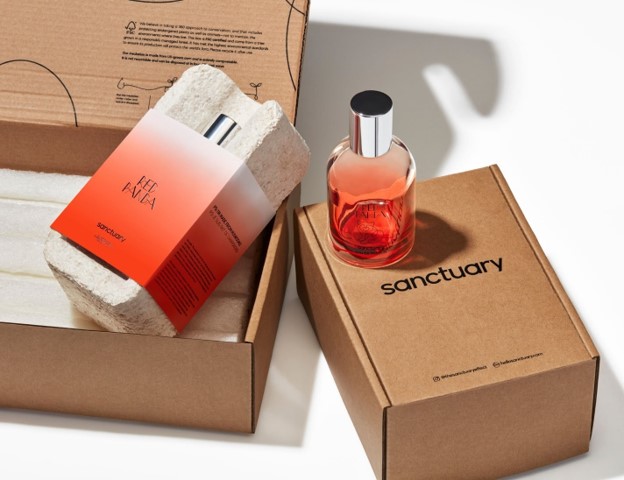As reducing plastic pollution and greenhouse emissions from animal agriculture have become priorities in stopping the climate crisis, companies have been searching for material substitutes that can both sustain their business long term as well as promote a sustainable lifestyle for consumers. Ecovative Design is providing that solution through the mycelium, which is the root structure of mushrooms.
Eben Bayer, the CEO and Co-Founder of Ecovative Design, took the time to discuss how his company is using mycelium to help create products that can reduce the use of animal agriculture and plastic.
What is Ecovative Design?
Founded in 2007, Ecovative is a mycelium technology company that is focused on growing better materials for the food, packaging, and textile industries.
The journey started with a mission to replace materials that humans throw away, such as plastic packaging like styrofoam, that negatively impacts the planet’s ecosystem, as well as to mitigate climate change brought on by industrial animal agriculture to create healthier food options and leather substitutes.
Since then, Ecovative Design has partnered with a range of companies across industries to research and develop new mycelium solutions, such as its next generation Mycelium Foundry that is used to grow mycelium at a commercial scale in the world’s largest vertical mycelium farm. Ecovative Design also developed and licensed mycelium materials technologies around the world, which help distribute our product line to over 32 countries.
Why mycelium? Why over other sustainable materials?
Current eco-friendly alternatives come with major trade-offs: they are more expensive, do not perform well, or are difficult to scale.
We help solve this problem by using precise incubation systems and a deep understanding of mycelium’s biology, which our team has been working with over 15 years, to amplify the natural properties of specific strains to fit unique needs for products and customers. Our mycelium foundry uses proprietary biofabrication and vertical farming processes to grow fully formed materials; we do not rely on heavy machinery or non-renewable resources to produce our products . These mycelium materials have structural properties uniquely suited for use in products that replace plastic, styrofoam, leather, and animal agriculture without sacrificing performance or cost
Currently, the company seems to be creating multiple types of products. Could you tell us what industries are you trying to disrupt as well as any future avenues you are planning to move into?
Our focus is currently on three verticals—food, textiles, and packaging. While mycelium can be used for many things, we only work on applications of mycelium that meet the following criteria
While our focus right now is on packaging, textiles, and food, the company envisions mycelium as a disruptive technology in many industries where pollution, waste, and carbon emissions are a concern.
What is the biggest challenge in scaling this company?
Across the board, the biggest challenge is proving performance parity with existing materials. Take packaging for example—current options for protective packaging have been perfected over the past half century, and are now extremely cheap and lightweight; but, the long-term environmental impact of this packaging has been ignored.
Historically, the biggest challenge for bio-materials has been producing the materials on a commercial scale. Developing a new material is an expensive and time consuming process, and our team has spent the last 14 years building knowledge and infrastructure to perfect the process and deliver on mycelium’s potential.
Our Mushroom® Packaging had to be as good as, or even better than, conventional packaging to compete. The same challenge is true for the food and textiles sectors—it’s simply not enough to be more sustainable. Our products, first, have to perform and, we’re excited that we now have plenty of empirical evidence to show our mycelium-based products can perform as well as, or even better than, conventional alternatives.
What is the empirical evidence of your products?
We only target markets where mycelium-based products are able to be equal or exceed the performance of conventional alternatives. Our packaging, textile, and food technologies all fit into this category:
Packaging:
- Mushroom® Packaging is simply made with two ingredients: hemp hurds and mycelium
- A high-performing packaging solution, cost competitive, thermally insulating, fire and water resistant
- Can be composted in 45 days under the soil in your backyard
- Forager™ Hides grow in nine days, versus months or years to raise a cow, sheep, or pig
- Forager™ Hides are a grown, vegan, and earth-friendly mycelium hide that is free of polyurethane (PU) or polyvinyl chloride (PVC)
- Our Forager™ Hides are grown in rectangular sheets up to 20 feet in length with predictable and tunable properties across the hide
- 1.25 gallons of water required to produce one lb. of mycelium bacon vs. 575 gallons of water required to produce one lb. of pork
Who are your current customers for your products?
Ecovative Design has a variety of customers across our three verticals of packaging, textiles, and food. Our Mushroom® Packaging is used by many brands including Seedlip, Keap, and Aplós to provide protective packaging for their products.
On the textiles side, we’ve already licensed our technology to Bolt Threads, and are now working with fashion and apparel companies to bring Forager® Hides, Ecovative’s animal-free leather alternative, to more consumers.
On the food side, Atlast Food Co. is working with consumer packaged goods (CPG) brands that are developing plant-based bacon using our mycelium super ingredient, and through our consumer-facing brand, MyEats, we are currently selling limited quantities of MyBacon at Honest Weight Food Co-op, an Albany, NY-based grocer with expanded distribution in 2022.
Why Ecovative Design over the rest of mycelium-related companies?
Ecovative Design holds over 40 patents in 30 different countries and has perfected the science of mycelium through proven, proprietary technology.
Ecovative is the only mycelium company producing market-ready materials at commercial scale. We have over a decade of experience shipping products globally, and have shipped millions of units of packaging worldwide. Our global network of licensees produce millions of pounds of mycelium materials annually across multiple production sites. Together with our partners, Ecovative is responsible for more production than all other mycelium producers combined.
Just as importantly, we are the research leader, kick-starting the field in 2007, and most recently building Mycelium Foundry One, the world’s most advanced mycelium research facility, in 2019. Mycelium Foundry One is capable of high throughput, rapid testing and replication to identify the perfect mycelium strain for the right application. Our team oversees product development all the way from small scale prototyping to commercial scale mycelium material production.
Why should we keep an eye on Ecovative Design?
With the $60M raised in new funding in March, the company will be expanding quickly over the next few years. It has been building on more than a decade of experience producing mycelium materials with partners throughout North America, Europe, and Asia. This funding will power Ecovative’s next-generation Mycelium Foundry and support another 10X boost in production.
The team has also spent the last decade assembling the largest mycelium library in the world and is actively exploring the properties of each of those strains. Every mushroom has unique performance characteristics. Some may yield mycelium that is especially dense, tough, or flexible.
Ecovative focuses on customizing mycelium materials to match unique market needs for the partners.
Outlook:
Ecovative Design is taking a lead in the mycelium industry and turning it into another option to help transition our consumer lifestyle into a sustainable one.
There are over 5M species of fungi on Earth, but so far, humans have only discovered less than five percent of them. The potential opportunities of mycelium are untapped as more organizations like Ecovative are discovering new species of fungi as well as their unknown properties with the company’s ever growing mycelium library and rigorous research and development.
As Ecovative Design is able to prove the use of their products for mainstream companies, mycelium may quickly be adopted and embedded in our society before we know it.
If you want to understand more on how the company works with mycelium, check out this recent video from Business Insider.
About The Author

“Javin Chan is a sustainability-oriented individual who has previously worked as a Fall impact investment analyst for Flat World Partners. He had done operational and strategy work with local impactful businesses through helping them acquire funding successfully through developing their go-to-market strategy and pitch decks. He is looking for opportunities to use his value added expertise to help grow and scale clean-tech companies that can drive impact.”

